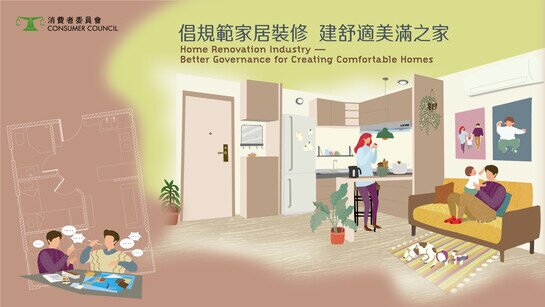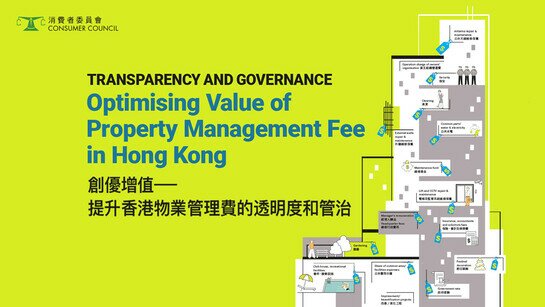Overview
Most Hong Kong residents live in small-sized flats owing to the shortage of land supply and high population density in the city. With consumers’ wish to optimise the use of limited space, the market demand for home renovation services has always been high. Nevertheless, home renovation can be a stressful process for many consumers, often involving complex procedures, high level of personal involvement and multiple touchpoints with traders. The average consumer lacks the requisite experience and knowledge to properly appreciate the intricacies underlying a home renovation project, often ending up in having no choice but to rely on the trader’s expertise. Owing to the existence of traders with varying levels of quality in the home renovation industry and Hong Kong is yet to have a specific regulatory regime governing the operations of home renovation companies and services, in the event of disputes, consumers have to rely on general consumer protection laws and the common law, which do not offer specific protection against specific pain points faced by consumers.
Therefore, the Consumer Council (the Council) conducted a comprehensive study on home renovation services in Hong Kong and released a report titled “Home Renovation Industry – Better Governance for Creating Comfortable Homes” (the “Study”). The Study aimed to holistically understand consumer perception of the home renovation industry, identify problematic trade practices, and with reference to laws, regulations and consumer protection initiatives undertaken in other markets, propose recommendations that fit the context of Hong Kong for the consideration of relevant stakeholders.
Key Findings
The Study was conducted from April 2022 to January 2024. The scope of the Study covered home renovation projects of various nature, size, and value in general; however, services in the nature of piecemeal repair or maintenance of specific fixtures or fittings within the residential property were excluded. Research methods adopted included: (i) an analysis of complaint and litigation cases arising from home renovation projects, (ii) a consumer perception survey, (iii) focus group discussions with consumers who had home renovation experience, (iv) a review of advertisements published via different channels by home renovation companies and online matching platforms (“traders”), (v) mystery visits for first-hand experience in engaging traders, (vi) quotation analysis, (vii) in-depth interviews with traders and stakeholders, and (viii) desk research on relevant laws and regulations in selected markets. The Council derived the following difficulties faced by consumers at different stages of renovation from the above research methods:
Awareness and information search:
- Many consumers found it hard to compare quotations in different formats
- Too many choices of companies with varying levels of quality
- Low information transparency for pricing and work schedule provided by traders
- Exaggerated promotions and untrue offers in advertisements
Pre-commencement:
- Suspicious claims, undesirable practices and problematic sales tactics were observed in mystery visits
- Quotations were incomprehensive and without sufficient consumer safeguards
- A sizeable share of companies engaged were lax about regulations concerning fire safety and alteration/addition works
Commencement:
- Top 3 worries of consumers were unfinished work, defective work, abscondence of company after payment
Completion and follow-up:
- 1 in 5 consumers had disputes with companies they appointed
- Top 3 disputes: delay in completion, defective work, and failure to rectify defects
- Divergence in views between consumers and traders as to the standards of workmanship
- Lack of monitoring authorities and industry guidelines
Recommendations
To alleviate challenges and issues in the current home renovation industry and thus pave way for better consumer safeguards along consumers’ home renovation journey, the Council puts forward 4 major recommendations with reference to practices in 6 other markets:
1. Establish a Standard Form Quotation
2. Establish a Government-endorsed Accreditation Scheme
3. Adopt a Cost-effective and Efficient Alternative Dispute Resolution (ADR) Mechanism
4. Intensify Consumer Education
Conclusion
The Council hopes to arouse all stakeholders’ attention to the home renovation industry through the release of the Study. The Council calls for collaborative efforts of the Government, relevant statutory bodies, professional associations, traders and consumers for the execution of the recommendations suggested above in a progressive manner, with a view to assuring consumers of a smooth and well-protected home renovation journey. In the meantime, the Council would continue its public education and industry monitoring work to assist consumers in realising their dream of having a comfortable home.













